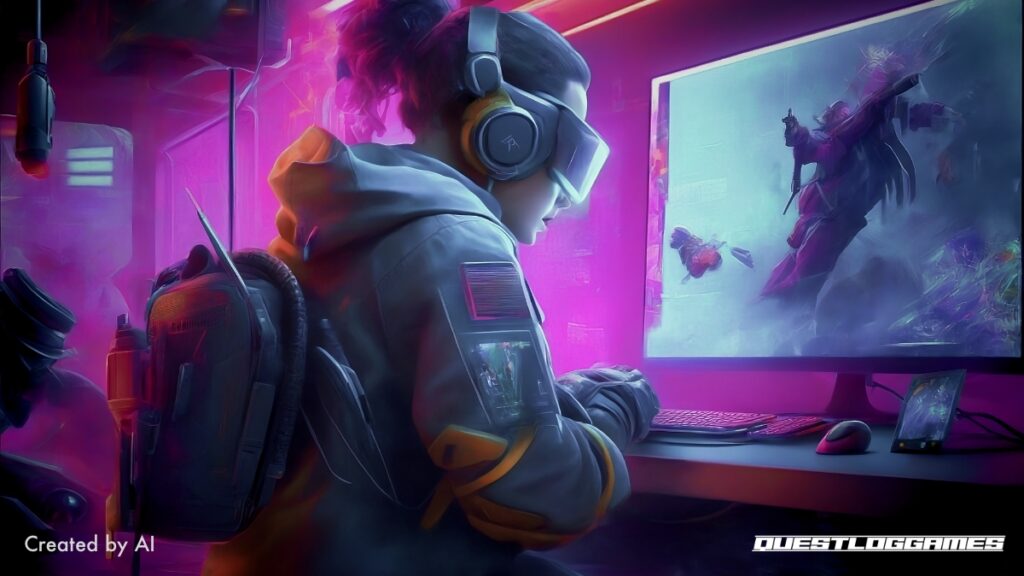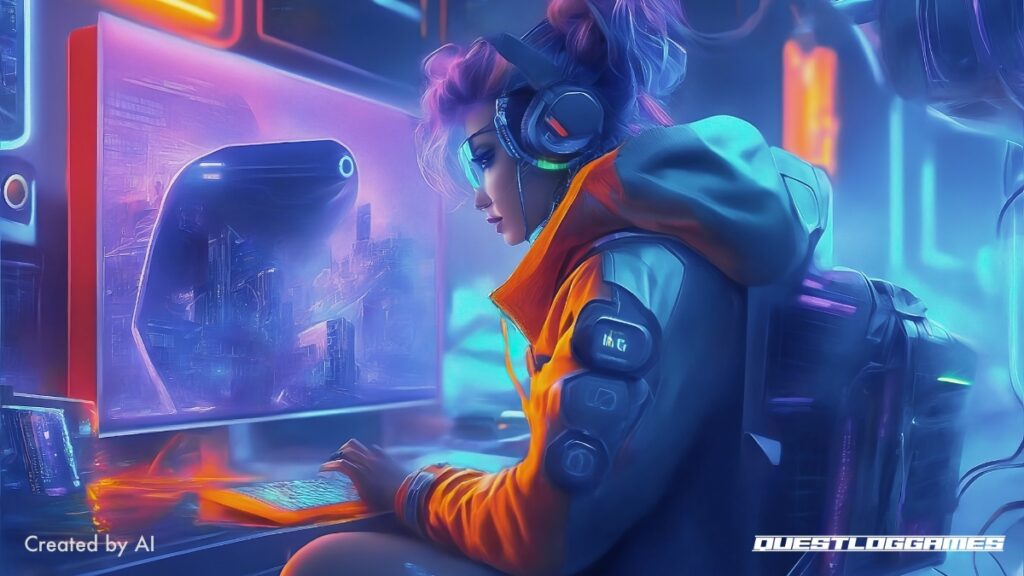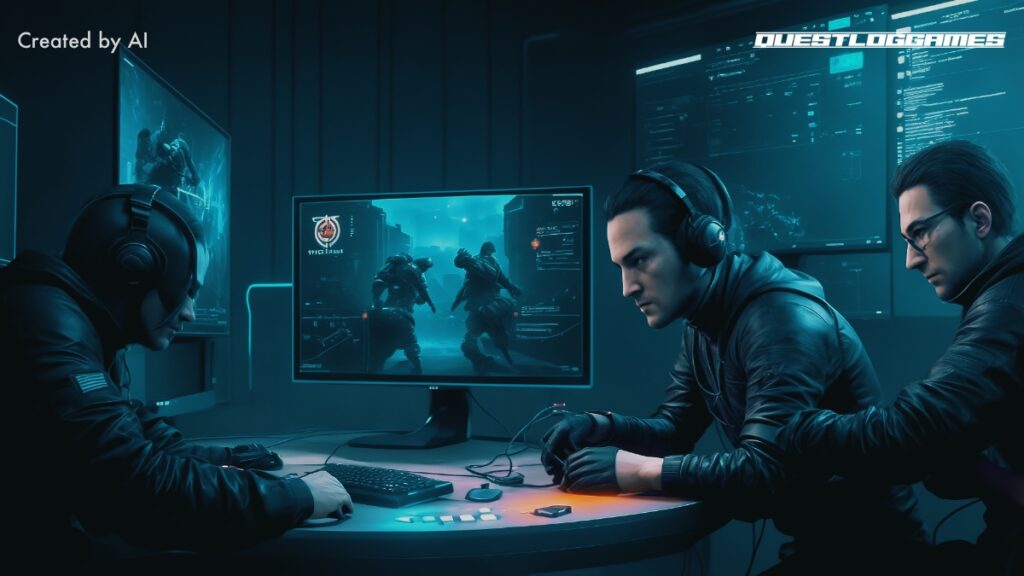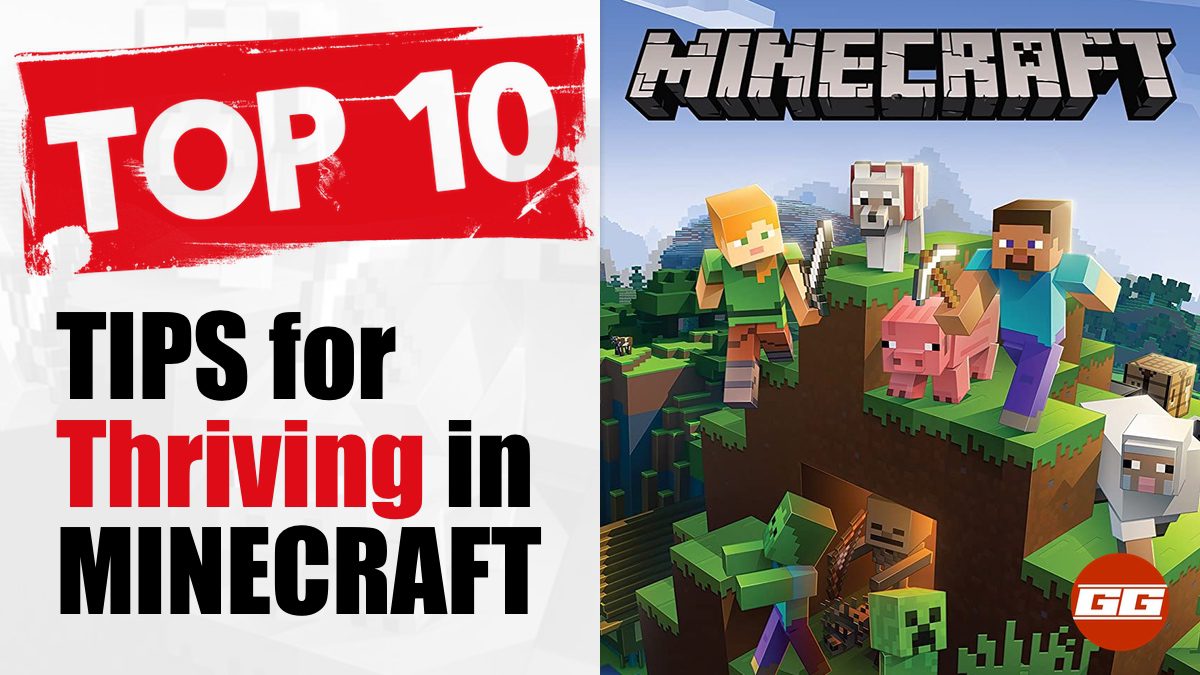
Many people dream of working in the gaming industry, whether it’s creating games or working for big studios and publishers. However, breaking into this industry can be challenging, especially for those who are new to the field. If you’re considering a career in gaming, it’s important to know the first steps to take to get started.
In 2023, the gaming industry is booming, and there are many job opportunities available for those with the right skills and qualifications. Some of the top-rated, best-paid, and most required jobs in the gaming industry include game designers, programmers, artists, producers, and quality assurance testers.
To learn these jobs and get hired in the future, it’s essential to gain the necessary skills and experience through education, internships, and personal projects.
Table of Contents
Understanding the Gaming Industry
The gaming industry is a rapidly growing market that is constantly evolving. It encompasses a wide range of entities, from indie game developers to large game studios and publishers. The industry has expanded beyond traditional gaming platforms, such as consoles and PCs, to include mobile devices and virtual reality.
The video game industry is a multi-billion dollar market that is expected to continue growing in the coming years. The industry is highly competitive, and it can be difficult to break into. However, with the right skills and knowledge, it is possible to start a successful career in the gaming industry.

To get started in the gaming industry, it is important to understand the different roles and responsibilities within the industry. Game developers are responsible for creating the games, while game publishers are responsible for marketing and distributing the games.
Game studios are companies that develop and publish games, while gaming companies may specialize in hardware or software development.
Indie games are games developed by individuals or small teams without the backing of a larger company. These games may be distributed through digital platforms, such as Steam or the App Store. Indie games can be a great way to gain experience and build a portfolio.
In addition to traditional gaming platforms, the industry has expanded to include virtual reality. Virtual reality games require specialized knowledge and skills, and may require additional hardware, such as VR headsets.
To get started in the gaming industry, it is important to have a strong foundation in programming and game design. Many employers prefer candidates with experience creating games, which can be obtained through courses and certifications in certain software systems. It is also important to stay up-to-date with the latest technologies and trends in the industry.
Overall, the gaming industry offers a wide range of opportunities for those with the right skills and knowledge. With dedication and hard work, it is possible to start a successful career in the gaming industry.
Top Rated and Best Paid Jobs in Gaming
The video game industry is a rapidly growing field with many job opportunities available for those who are passionate about gaming. Here are some of the top-rated and best-paid jobs in gaming in 2023:
Game Designer
Game designers are responsible for creating the overall concept of a video game, including the gameplay, storyline, and characters. They work closely with other members of the development team to ensure that the game is engaging and fun to play.

To become a game designer, one needs to have a strong understanding of game mechanics, as well as experience in programming and graphic design. A degree in game design, computer science, or a related field is also desirable.
According to recent data, the average salary for a game designer is around $85,000 per year.
Game Developer
Game developers are responsible for writing the code that brings a video game to life. They work closely with game designers to ensure that the game mechanics are implemented correctly and that the game runs smoothly on various platforms.

To become a game developer, one needs to have a strong understanding of programming languages such as C++, Java, and Python. A degree in computer science or a related field is also desirable.
According to recent data, the average salary for a game developer is around $95,000 per year.
Animator
Animators are responsible for creating the visual elements of a video game, including characters, environments, and special effects. They work closely with game designers and developers to ensure that the game looks and feels immersive.

To become an animator, one needs to have a strong understanding of animation software such as Maya or 3DS Max. A degree in animation, graphic design, or a related field is also desirable.
According to recent data, the average salary for an animator is around $70,000 per year.
Quality Assurance Tester
Quality assurance testers are responsible for testing video games to ensure that they are free of bugs and glitches. They work closely with game developers and designers to identify and fix any issues that may arise during the development process.

To become a quality assurance tester, one needs to have a strong understanding of game mechanics and programming. A degree in computer science or a related field is also desirable.
According to recent data, the average salary for a quality assurance tester is around $50,000 per year.
Overall, the video game industry offers a wide range of career paths for those who are passionate about gaming. With the right skills and education, one can pursue a fulfilling career in game design, development, animation, or quality assurance testing.
Learning the Necessary Skills
To get started in the gaming industry, it is important to have the necessary skills and experience. Many game developers and designers have a college degree in computer science, game design, or a related field. However, having a college degree is not always required, as many successful game developers have learned through self-teaching and building their own portfolio.
One of the most important skills for game development is programming. Knowing programming languages such as C# and Lua, as well as frameworks like Phaser.js and game engines like Unity and Unreal Engine, can give a significant advantage in the job market. It is also important to have technical skills in areas such as animation, sound design, and gameplay mechanics.

In addition to technical skills, creativity and passion for gaming are essential for success in the gaming industry. Game developers and designers are responsible for creating games that are engaging and fun to play, and having a deep understanding of video games and game development is crucial.
To learn the necessary skills for game development, there are many resources available online, such as Codecademy and Coursera, which offer courses in game development and programming. It is also important to build a portfolio of game development projects to showcase skills and experience to potential employers.
Overall, learning the necessary skills for game development requires a combination of education, experience, and passion. By building technical skills, creativity, and a strong portfolio, aspiring game developers can increase their chances of success in the competitive gaming industry.
Building a Strong Resume
When it comes to getting started in the gaming industry, building a strong resume is crucial. A resume is a document that highlights an individual’s skills, experiences, and educational background. It is often the first impression that a potential employer has of an applicant, so it is important to make it stand out.
To create a strong resume, it is essential to focus on responsibilities and accomplishments. Simply listing jobs and schooling is not enough. For each job, add 3 to 5 bullet points that clearly state what was accomplished and why it was important. This will help employers understand the specific skills and experiences that an applicant brings to the table.
In addition to responsibilities and accomplishments, it is also important to highlight relevant skills and competencies. For example, if an individual is interested in programming, they should highlight their programming languages and experience with tools such as C# and Unreal Engine. If an individual is interested in sound design, they should highlight their experience with audio software and recording equipment.
When creating a resume for the gaming industry, it is also important to include a portfolio. A portfolio is a collection of an individual’s work that showcases their skills and abilities. This can include game design documents, coding projects, animation reels, and writing samples. A portfolio is a great way to demonstrate creativity and expertise to potential employers.
Finally, it is important to have a college degree in a relevant field such as computer science or game design. While a degree is not always required, it can help set an individual apart from other applicants and demonstrate a commitment to the industry.
By focusing on responsibilities and accomplishments, highlighting relevant skills and competencies, including a portfolio, and having a relevant college degree, individuals can build a strong resume that will help them stand out in the competitive gaming industry.
Networking in the Gaming Community
Networking is an essential part of breaking into the gaming industry. It involves building relationships with people in the industry who can provide valuable insights, advice, and connections. Networking can also help individuals get their foot in the door when it comes to finding job opportunities.
One way to network in the gaming community is by attending gaming events, such as conventions or game jams. These events provide an opportunity to meet other game developers and enthusiasts, as well as potential employers. It is important to come prepared with business cards or other materials that showcase one’s skills and experience.

Another way to network is by participating in online gaming communities, such as discussion boards or gaming blogs. These communities provide a platform to connect with other game developers and potential employers, as well as share knowledge and insights about the industry.
Networking can also involve reaching out to potential employers directly, such as recruiters or hiring managers. This can be done through email or social media, but it is important to make sure that one’s message is professional and tailored to the specific employer.
Overall, networking in the gaming community is an essential part of breaking into the industry. It involves building connections, marketing oneself, and staying up-to-date on industry trends and developments. By networking effectively, individuals can increase their chances of finding job opportunities and advancing their careers in the gaming industry.
Gaining Experience through Internships
Internships can be a great way to gain experience in the gaming industry, especially for those who are just starting out. Many game companies offer internships to students or recent graduates who are looking to get their foot in the door. These internships can provide valuable hands-on experience and networking opportunities.
As an intern, one can learn about the different aspects of game development and gain experience working with industry professionals. This can include programming, game design, art, sound design, and more. Interns can also learn about the business side of the industry, such as marketing and project management.
Internships can also be a great way to make connections in the industry. Interns can meet potential employers and hiring managers, and they can also network with other interns. This can lead to future job opportunities and a better understanding of the industry as a whole.
When looking for internships, it is important to research potential companies and find ones that align with one’s interests and goals. It is also important to have a strong resume and cover letter that showcases one’s skills and passion for the industry.
Overall, internships can be a valuable way to gain experience and make connections in the gaming industry. By taking advantage of these opportunities, one can increase their chances of landing a job in the future.
Applying for Jobs in the Gaming Industry
Getting a job in the gaming industry can be a dream come true for many people who are passionate about video games. However, breaking into this competitive field can be challenging, especially for those who are just starting out. Here are some tips on how to apply for jobs in the gaming industry and increase your chances of landing your dream job.
Resume and Application Process
When applying for a job in the gaming industry, it’s important to tailor your resume and cover letter to the specific job you are applying for. Highlight your relevant skills and experience, such as game development, programming, design, or art. Be sure to include any relevant certifications or degrees you have earned.
It’s also important to research the company you are applying to and tailor your application to their specific needs. This will show potential employers that you are serious about the job and that you have done your homework.
Networking and Feedback
Networking is key in the gaming industry. Attend industry events, join online forums, and connect with other professionals in the field. This can help you learn about potential job opportunities and get feedback on your work.
When applying for jobs, be prepared to receive feedback from recruiters and hiring managers. Take this feedback seriously and use it to improve your skills and application materials.
Potential Employers and Salary
There are many potential employers in the gaming industry, including game development studios, publishers, and hardware manufacturers. Research different companies and job opportunities to find the best fit for you.
Salaries in the gaming industry can vary widely depending on the job and location. According to Glassdoor, some of the highest paying jobs in the industry include software engineer, senior game designer, and technical artist.
Conclusion
Applying for jobs in the gaming industry can be challenging, but with the right approach, it’s possible to land your dream job. Tailor your application materials to the specific job and company, network with other professionals in the field, and be prepared to receive feedback. With hard work and dedication, you can build a successful career in game development and the gaming industry.
Understanding the Future of the Gaming Industry
The gaming industry has been growing at an unprecedented rate over the past few years, and it shows no signs of slowing down in 2023. With the rise of new technologies, gaming companies are exploring new ways to engage with their audiences and provide unique gaming experiences. In this section, we’ll take a closer look at the future of the gaming industry and what it means for aspiring game developers and professionals.
The Growing Market
The video game industry has become a massive global market, with an estimated worth of over $300 billion in 2023. With the rise of mobile gaming and the increasing popularity of console gaming, the industry is expected to continue growing in the coming years. As more people around the world gain access to smartphones and high-speed internet, the potential audience for video games is only going to increase.
New Technologies
Virtual reality (VR) and augmented reality (AR) are two of the most exciting new technologies in the gaming industry. With VR, players can immerse themselves in a fully-realized virtual world, while AR allows for a more interactive and engaging gaming experience. As these technologies continue to develop, game developers will have new tools at their disposal to create even more immersive and engaging games.
The Rise of Esports
Esports has exploded in popularity over the past few years, with professional gaming tournaments drawing in millions of viewers around the world. As more and more people become interested in competitive gaming, the demand for skilled professionals in this area is only going to increase. Game developers and publishers are also starting to invest more heavily in esports, creating new opportunities for aspiring professionals to get involved.

The Importance of Innovation
As the gaming industry continues to grow and evolve, innovation will be key to success. Game developers and publishers will need to stay ahead of the curve by creating new and innovative gaming experiences that capture the attention of players. This means that aspiring professionals will need to be creative and adaptable, always looking for new ways to push the boundaries of what’s possible in the gaming industry.
Overall, the future of the gaming industry looks bright, with new technologies and growing markets providing exciting new opportunities for aspiring professionals. By staying up-to-date with the latest trends and technologies, and by being creative and adaptable, aspiring game developers and professionals can position themselves for success in this rapidly-evolving industry.
Frequently Asked Questions
How to get started in game development?
To get started in game development, one can take courses or enroll in programs that teach the necessary skills. Online learning platforms like Coursera and Codecademy offer courses in game development that cover topics such as programming, game design, and game engines. Additionally, one can start building their own games as a hobby or participate in game jams to gain experience and develop a portfolio.
What are the first steps to take to work for big gaming studios and publishers?
The first steps to work for big gaming studios and publishers involve gaining experience and building a strong portfolio. This can be achieved by working on personal projects, participating in game jams, or joining a game development team. Networking is also important in the gaming industry, so attending industry events and conferences can help one connect with potential employers.
What are the most required jobs in the gaming industry?
The most required jobs in the gaming industry include game designers, programmers, artists, and producers. These roles are essential in the development of a game, and each requires a unique set of skills. Additionally, roles such as game testers and community managers are also in high demand.
What are the best paying jobs in the gaming industry?
The best paying jobs in the gaming industry include executive positions such as CEOs and CFOs, as well as creative roles such as game designers and art directors. Additionally, highly specialized roles such as AI programmers and network engineers also command high salaries.
How to learn the required skills for gaming industry jobs?
To learn the required skills for gaming industry jobs, one can take courses or enroll in programs that teach the necessary skills. Online learning platforms like Coursera, Udemy, and Codecademy offer courses in game development that cover topics such as programming, game design, and game engines. Additionally, attending industry events and conferences can help one stay up-to-date with the latest trends and technologies in the gaming industry.
What are some entry-level jobs in the gaming industry?
Some entry-level jobs in the gaming industry include game testers, quality assurance analysts, and customer support representatives. These roles require little to no experience and provide opportunities for individuals to gain experience and advance in the industry. Additionally, internships and apprenticeships can also provide valuable experience and networking opportunities.






